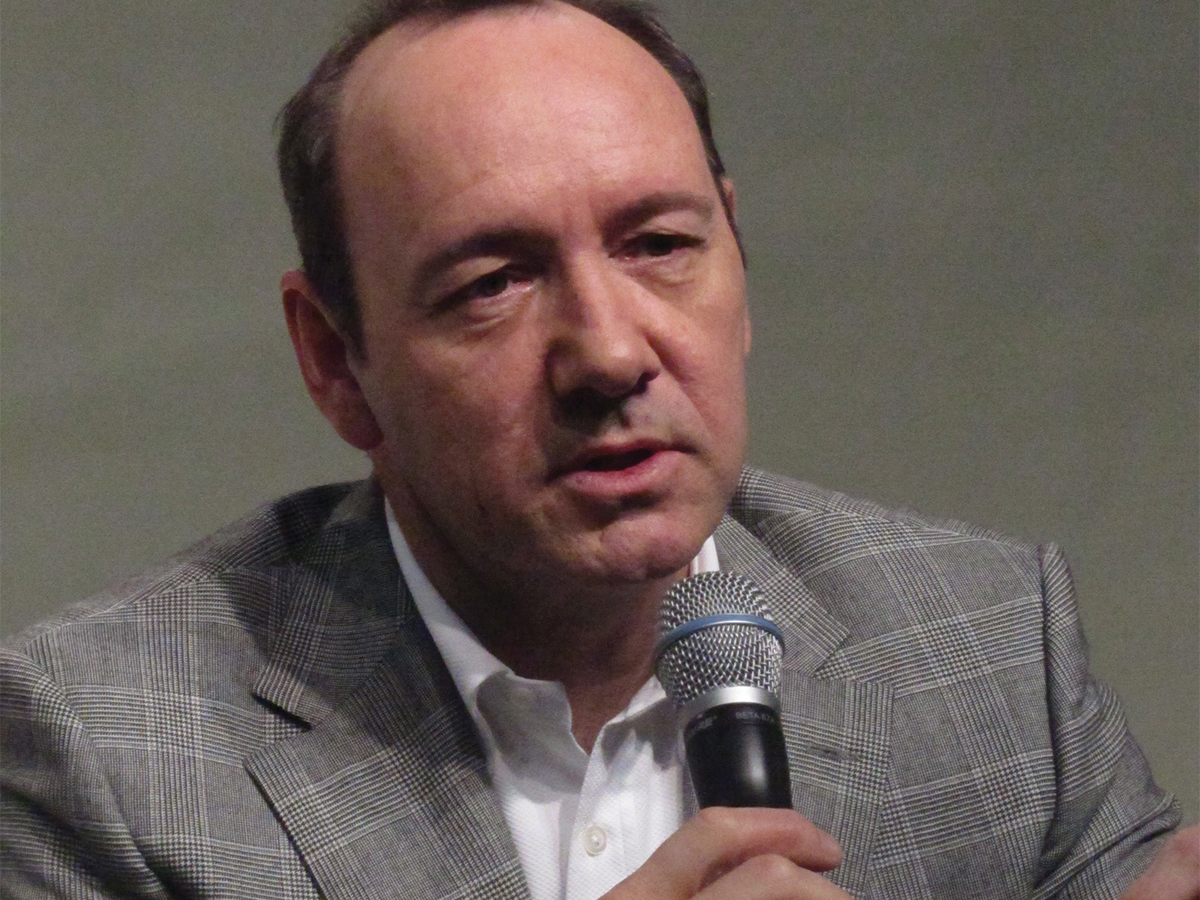
Deflection has become patriarchy’s favorite tool; it’s a nefarious weapon designed to slight an event, to eclipse another sensationalized act. It’s potent enough to create a funhouse effect where realities are stretched and blurred, while primary reactions and initial outrage are emphasized, boldened. It’s also a tool regularly used and recently legitimized by the Trump administration. The tools themselves have no gender, sexual orientation or political party; they can be wielded by anyone interested in domination. Recently, actor Kevin Spacey has utilized a deflective “rainbow shield” to eclipse charges of sexual assault by actor Anthony Rapp.
In an interview with Buzzfeed News, Rapp details Spacey’s sexual advancements with the actor at the age of 14. Spacey, in response, tweeted with a calculated and cold apology, reading, “I honestly do not remember the encounter, it would have been over 30 years ago … I owe him the sincerest apology for what would have been deeply inappropriate drunken behavior.” He then closes the remark by coming out as a gay man. It’s a fraught and meticulous apology that leans into a lack of accountability for his supposedly drunken actions. This sketches the figure of gay men as predatory, violently aggressive when drunk. The pathologizing of the LGBTQ community plays into the stereotype of LGBTQ communities being sexually corrupt and irresponsible. History shows us that attacks on the LGBTQ community usually pivot on conservative and moralistic views of sexuality that is used to emphasize the immorality of their sexuality, making them prone to commit horrendous acts like pedophilia and sexual assault.
This apology, then, folds into a slighted acknowledgement of Rapp’s experience. It plays on the amount of time between the incident and its public disclosure, and Spacey’s intoxication blurs his experience with Rapps, rather than affirming it and apologizing to him. The flimsy apology’s closing is designed to sensationalize and alter the narrative from one of child molestation into Spacey coming out as a gay man after a long life of secrecy. It reads with a disinterest in accountability. For Spacey to come out after claims of sexual assault is irresponsible and deceitful. There is no appropriate time to come out and it is his right to protect his private life. However, he often uses this privacy alongside the openly kept secret of his sexuality either as shield or sword, depending on how it aids him.
Spacey’s rainbow shield — that is, using his identity as a queer man to defend himself from legitimate criticism — was effective, as the following day the narrative turned its head on his pedophilia, focusing on his on his public coming out. It’s a defense that is predicated on his celebrity. He wields his gay opacity for his own benefit, like his tasteless jokes of coming out at the Tony’s. It’s a cruel power play that taunts, mocks, and silences an unaware general audience. For Spacey to use the open secret of his sexuality and history of sexual harassment as a joke reflects the benefits of being in a glass closet which he’s weaponized against the people he assaulted. When he plays off his sexuality, there’s a delineation of a power structure within the film industry that protects and conceals abusive men like Harvey Weinstein while silencing those affected.
The conversation surrounding these events adds a dimension to the ongoing conversations of sexual assault embedded in the film industry. It suggests that the nature of rape culture is to blame, and blaming victims rather than keeping abusers accountable. It further shelves those affected by sexual assault or misconduct into silence and despair while abusers like Spacey can reconfigure that history into personal myth.
Feminist philosopher Sara Ahmed’s methodology for navigating the complexity of institutions inseparable from rape culture is through the complaint. Complaints function as an interlocking structure of solidarity amongst victims against institutional cultures regulating and ignoring incidents of sexual assault. She details the cycle of filling out a complaint or to call out a problem is to immediately to become that very same problem. For Ahmed the complaint is powerful as it can lead into a crack within walls that encourage others to step forward with more complaints — more people together against an abusive institution. The potency of the complaint has proved to take down those figures of abuse as we’ve seen women in Hollywood armed with one another step forward on Harvey Weinstein’s endless sexual harassment history. For Ahmed, the complaint is a feminist tool against deflective shields — be it in rainbows or monocolor. The resistance has its own weapons too.








